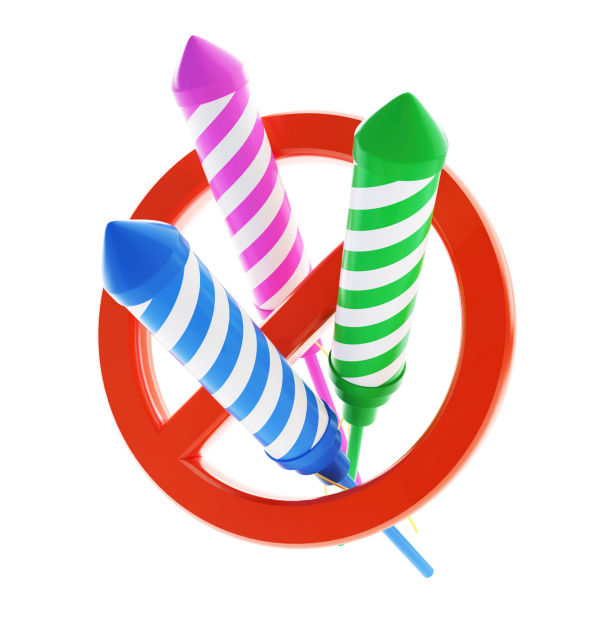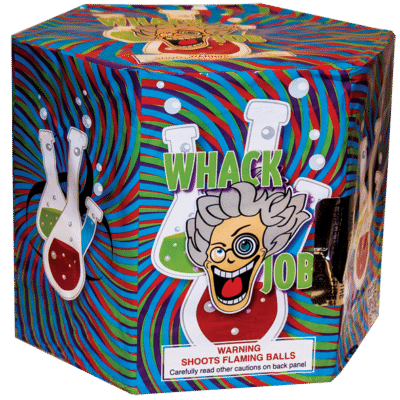Fireworks are classified and, to some extent, regulated by federal laws. For example, the Consumer Product Safety Commission (CPSC) sets strict guidelines for the size, explosive power, design, and labeling of consumer fireworks which, in spite of fireworks become more impressive, has helped to drastically improve safety in recent years. Items such as M-80s and cherry bombs have been banned in all 50 states since 1966 due to safety considerations. Other departments, such as the Bureau of Alcohol, Tobacco, Firearms and Explosives (ATF) and the US Department of Transportation, regulate professional fireworks, as well as the manufacturing and transportation and shipment of consumer fireworks.

For the most part, however, consumer fireworks are regulated by a patchwork of local and state laws. These local and state laws are often more strict than federal laws. While it would be impossible to cover all local ordinances, as well as some of the nuances of individual state laws, here we have compiled an overview of fireworks laws by state. We highly recommend that you check with your state and local authorities if you have any doubts about the legality of a specific type of firework or fireworks display.
Consumer Fireworks Permitted
Forty-four states and the District of Columbia allow the sale, distribution, and use of consumer fireworks. However, not all states allow all fireworks that are otherwise legal under federal law, and many set additional restrictions on fireworks purchases. In fact, only Alaska, Georgia, and Wyoming have no state laws that are stricter than federal standards.
Thirty-one states plus the District of Columbia ban certain types of fireworks. These bans range from relatively minor, such as New Mexico’s prohibition of very specific types of stick rockets, to the wide-ranging bans on most types of fireworks issued by Washington, DC and Virginia. The most commonly banned fireworks, other than those that are already illegal under federal laws, are rockets and roman candles. In recent years, many states and local jurisdictions have taken action to ban sky lanterns due to the danger they can cause when they land. Illinois made them illegal in 2013 and they are also banned in California, Hawaii, Minnesota,Tennessee and Virginia. Aerials cakes and shells in general are also prohibited in many states.
Besides Washington, DC and Virginia, the states with the strictest bans include California, Colorado, Maryland, Minnesota, and Wisconsin. These states not only prohibit aerial fireworks, bottle rockets, roman candles, and the like, but they also set specific guidelines for chemical composition, size, shape, or other details. In addition, most of these states have a clearly prescribed list of exactly what types of effects are permitted (such as snakes or wire sparklers) rather than a more general category listing (such as handheld devices or sparklers). If you live in any of these states, it is very important to read your state’s regulations carefully to determine exactly what you are allowed to purchase and use. For example, in Wisconsin, although you can find many types of fireworks for sale, most fireworks that “go up or blow up” are actually illegal to use throughout the majority of the state unless you have a permit and you adhere to the specific dates and display sites that they can be used.
Pennsylvania and Rhode Island require consumers to obtain permits for all fireworks except those classified by the relevant state as handheld or ground based sparklers or novelties. Pennsylvania also gives an exception to toy caps, but Rhode Island does not. Illinois requires a permit for all consumer fireworks except for novelties such as sparklers, smoke devices, party poppers, and snappers (although the City of Chicago has also banned sparklers). Illinois has a separate consumer permitting process that includes a consumer-oriented safety training class, while Pennsylvania and Rhode Island use the same permitting process for consumer fireworks as for display fireworks.
In Indiana, fireworks laws were very strict until 2006. Since then, in exchange for an additional 5 percent Public Safety fee added to all fireworks sales in order to fund Public Safety Programs, all consumer fireworks are now legal to purchase and ignite year round. Beginning in 2012, Michigan fireworks laws around sales and ignition now very closely resemble the Indiana laws in exchange for a 6 percent Public Safety Fee that is added to all fireworks sales in order to fund Public Safety programs such as firefighter training.
Minimum age requirements for purchase are common, affecting 27 of the 43 states. The most popular minimum age is 16, but age requirements range from 12 (in Arkansas, North Dakota, and Oklahoma) to 21 (in New Hampshire). In Indiana, the legal age to purchase fireworks is 18.
Although the other states do not have minimum age restrictions for fireworks purchases, it is important to use common sense. Do not let children and younger teens make the sole decision about fireworks purchases unless they are highly familiar with the different types and their effects, and can be trusted to make reasonable safety assessments. Of course, you should never allow kids or young teens to use fireworks unaccompanied by an adult.
Twenty-one states set designated selling periods for consumer fireworks, typically around Independence Day and New Year’s Eve. Some of these states, such as Indiana, allow year-round sales by permanent facilities, and some allow year-round sales of small novelty products. However, these laws typically affect when retailers are permitted to sell fireworks rather than when consumers are allowed to buy them. Therefore, if you are buying fireworks from out of state or online, your state’s selling periods do not affect your purchase.
Novelty Items Only
Three states—Iowa, Ohio, and Vermont—only allow very narrowly defined consumer fireworks products. In Iowa, these are limited to gold sparklers, flitter sparklers, and snakes. These items may not contain specific banned substances such as perchlorate, chlorate, magnesium, or mercury.
Ohio allows noisemakers, sparklers, and novelties. Other consumer fireworks may be sold in the state, but state residents must sign paperwork pledging to take them out of the state within 48 hours. Non-residents must pledge to remove the fireworks from the state within 72 hours. Discharging consumer fireworks other than those that are specifically allowed is against state law.
Vermont allows sparklers that contain less than 20 grams of pyrotechnics and are less than 14 inches long. Specific sparkling novelties are also permitted, provided that they contain less than 0.25 grains of explosives.
Display fireworks are allowed in all three states, but there are strict licensing and control procedures in place. Consumer fireworks are not covered under display fireworks laws, nor are they are allowed as consumer products except for the specific types detailed above.
Consumer Fireworks Banned
Although public display fireworks shows are allowed with proper licensing and permits, Delaware, Massachusetts, and New Jersey have complete statewide bans on consumer fireworks. There are no exceptions for novelty items, sparklers, or any other effects. If you live in one of these states, do not attempt to purchase, import, possess, or use any fireworks or related products. Penalties can be stiff, and ignorance of the law is no excuse.
Purchasing Considerations
Four states—Montana, Oklahoma, Oregon, and Tennessee—do not allow mail-order or internet fireworks purchases. If you want to buy fireworks in these states, you must purchase them from a recognized, authorized dealer within your state.
Many states require consumer fireworks that will be sold within the state to undergo additional safety testing, typically by a state fire inspector. Importing fireworks is not normally prohibited in these states unless specifically noted in the law, but keep in mind that what is legal to possess in that state could change from time to time, depending on the results of the fire inspector’s testing. In fact, Nebraska issues a list each January of which fireworks are legal during that calendar year. Always check with your state authorities before ordering fireworks, especially those that fall into a frequently-banned category such as rockets, roman candles, or aerials.
Local Ordinances
Most states give individual cities, towns, and counties the authority to further regulate fireworks at the local level. For example, it is very common for densely packed big cities to have fireworks restrictions or bans that do not exist in more rural areas within the same state. For example, the City of Chicago also bans Sparklers while the Cook County Forest Preserve bans ALL fireworks. Although it would be impossible to provide a comprehensive list of local ordinances here, it is absolutely critical that you check your local laws before purchasing or discharging any fireworks products.
Because of their potentially dangerous nature, fireworks are regulated at the local, state, and federal levels. Although this is essential for safety, it can make the process of buying and using fireworks quite confusing. The state guidelines detailed above can help you understand what is and is not allowed, but remember that laws are always subject to change. To ensure that you are in compliance with the latest guidelines, always err on the side of caution, and check with authorities before making a purchase.
At Dynamite Fireworks, we don’t only sell top-quality, name-brand fireworks. We also provide the information you need to know to use them responsibly, legally, and safely. If you have any questions or concerns, give us a call at (219) 937-4090. We look forward to becoming your one-stop shop for all your fireworks needs!

